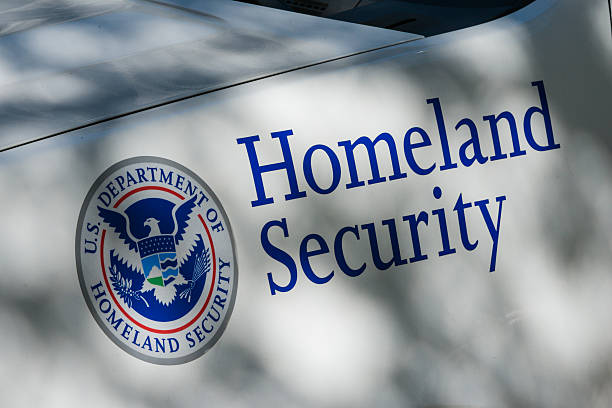What is Homeland Security?
The rapidly transforming global environment has made national security become a primary concern for most countries. Comprehensively protecting national security mainly depends on homeland security practices. Few people understand the essential purpose of homeland security even though many seem familiar with its concept. This paper analyzes what is homeland security within its fundamental concept and its operational framework to safeguard societal populations.

Key Areas of Homeland Security
There exist multiple homeland security subcategories which support the important functions described previously. We need to identify the main targets of homeland security.
Terrorism Prevention and Response
Homeland Security has focused its efforts on preventing terrorism which poses the greatest danger to America’s national security. Security threats originating from both native and foreign-based perpetrators endanger the well-being of the country. People working at the FBI and CIA together with personnel from the Department of Homeland Security unite to identify threats while also designing prevention strategies. They develop plans for response after an attack takes place intending to minimize harmful effects and recover speedily.
Cybersecurity
The security of countries today demands cyberspace security because it serves as a fundamental component of national defense. The protection of essential national infrastructure and government networks along with data must now be treated as a critical national priority. The existing nationwide entities face disruption threats from cyberattacks which affect both media systems and financial infrastructure. One of DHS’s main agencies under the umbrella is the CISA which deals with protecting networks from such threats.
Natural Disaster Management
Home security defense extends its protective responsibilities to imminent dangers emerging from natural catastrophes in addition to hurricanes earthquakes floods and wildfires. These events bring damage to both a nation along with all its residents although they lack evidence of deliberate harm. FEMA (Federal Emergency Management Agency) coordinates disaster management by providing strategic resources that ensure their effective deployment.
Border Security and Immigration Control
The protection of our homeland security requires prioritizing the management of border security alongside immigration controls. The systematic control of people flow and imported commodities simultaneously stops various unlawful activities such as trafficking and smuggling activities and unauthorized entry into the country. Customs and Border Protection Agency maintains border protection for the United States while immigration services check that everyone entering the country legally.
Public Health Security
A pandemic or biological threat demonstrates complete importance since it has the power to devastate an entire country thus public health remains essential for homeland security. The Center for Disease Control and Prevention along with other organizations such as CDC take part in sickness monitoring while preventing their spread. The organization helps keep population well-being intact while preventing health hazards from affecting public well-being and oversees healthcare system operations during epidemic outbreaks.
The Importance of Homeland Security
The better definition of homeland security allows us to evaluate its importance as a fundamental aspect of current society. The security threats move effortlessly between borders making no nation safe from security threats. New protective measures that address terrorism and natural disasters will make homeland security capable of sustaining national preparedness.
The economic protection of a country depends heavily on homeland security components. Key assets security combined with supply chain protection and social order management stimulates a sustainable and productive society. Economic security requires proper enhancement and implementation of homeland security to protect economies from raids and disruptive incidents.
The Role of Technology in Homeland Security
The development of technology has introduced significant changes to how homeland security operates as well as performs its duties. The advancement of surveillance technologies that span border systems and Cybersecurity protection of online facilities significantly strengthened security standards. The present era shows multiple examples of defensive technology implementation starting from drones through artificial intelligence up to data analytics applications.
Homeland Security has established effective phone and internet networks between public departments and law enforcement entities to react rapidly to emergencies.
Challenges in Homeland Security
The protection sector stands vital but it must deal with multiple operational obstacles because of its mission to defend the nation. Homeland security faces its primary challenge from the constant battle to protect freedom from security measures. Organizations face criticism from citizens when they implement prevention practices such as surveillance methods that raise concerns about personal freedom and autonomy.
There are persistent challenges because the organization cannot anticipate the next threats which continue to adapt. Due to ongoing digitalization worldwide, those who seek to harm others develop progressively complex methods. Cyberterrorism no longer represents the primary threat to nation safety but modern security threats continue to evolve in homeland security fields. A daily routine needs people to work together to develop innovative solutions as well as implement new approaches.
Conclusion: What is Homeland Security
The preservation of lives alongside assets together with national security demands the fundamental importance of homeland security existence. This disaster management system recognizes all types of failures which involve terrorist threats and natural disasters together with cyber risks while containing all necessary capabilities for national disaster response.

Modern globalization and additional developments turn homeland security problems into urgent complex challenges. Instead of changing the core function of saving lives all new technological breakthroughs will focus on modernizing threat response methods. According to him the call for protection of the United States along with any other nation in the world represents both essential necessity and sound financial investment.
FAQs: What is Homeland Security?
As an executive department of the United States federal government the Department of Homeland Security (DHS) maintains responsibility to protect American citizens together with their property and national infrastructure assets is it?
DHS emerged as a federal executive department for the United States after America experienced the 2001 September 11 attacks. The organization exists to defend America against impending threats including terrorism along with cyber-crimes and disasters and other future threats. Through collective efforts between the DHS and other federal agencies coupled with state and local governments the country works to enhance security measures.
Homeland security has affected daily life in the United States since its establishment while simultaneously influencing multiple sectors of existence is it?
These socio-political issues comprise airport security along with immigration control and crisis response and disaster management among others as previously discussed. The organization works to secure national cybersecurity and public health because it establishes protective measures against all types of dangers and catastrophes.














0 Comments